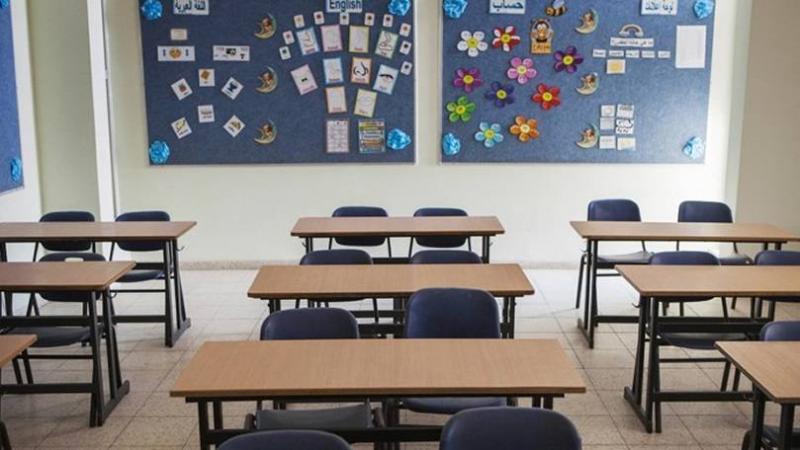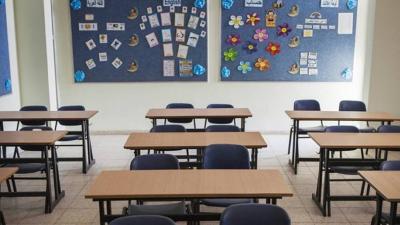The Ministry of Education announced the start of the academic year on Monday, September 5, 2022, with teachers expected to return to schools from that date. However, no date has been set yet for students to join their classes, meaning that the period until September 19 is for registration and preparation for teaching. This is the stance of the "upper management" of the educational process in Lebanon, namely the Ministry of Education. Additionally, Minister of Education Abbas Halabi made statements from Baabda regarding "preparing the suitable atmosphere for the academic year" and his "rejection of having students pay the price of the strike in the Ministry of Education." During a celebration for a private educational institution, he confirmed that "there will be no allowance for education to be disrupted or the academic year to slow down," discussing "securing support for teachers from donor entities alongside state provisions and social assistance and transportation allowances."
The reality on the ground, however, is different, as teachers, aware of "the contracts of senior staff in the ministry in fresh dollars," did not attach much importance to the ministry's commendable statements about education. This implies that teachers will not receive transportation allowances for the entire year of 2022, and messages from banks announcing the arrival of a long-awaited salary came incomplete, with a 17-day delay in a precedent that did not occur even during the years of the civil war. The financial ministry officials stated that the decrease in salary values is "for all state employees" and is due to "the recalculation of the 2021 untaxed tax, which will be deducted in three installments since the required amounts are large relative to the salary size and cannot be deducted all at once."
### No Attendance Allowance for Teachers
The teachers' syndicates firmly informed the Minister of Education during their last meeting on Wednesday that they would not be able to open schools if the situation remained as it is. They presented a study regarding the cost of living, highlighting "for the millionth time the disproportion between the required work and the salary." However, as of now, there is complete silence at the Ministry of Education, with no response to the syndicates and no requests for meetings to ease the obstacles; all information available is sourced from the media. The administrative body in the secondary education syndicate expressed surprise at the ministry's failure to "settle accounts from last year regarding transportation allowances" and incentives that have turned the educational process into something resembling charity, placing ministry departments under the scrutiny of donor entities after delays in payments to a considerable number of teachers.
Hussein Jawad, the head of the Basic Education Syndicate, revealed further injustices against the educational body, stating that "the attendance allowance agreed upon in the recent agreement between public administration employees and the government excludes the education sector." This will apply even to those delegated to administrative departments in various ministries, as the Civil Service Board did not consider them administrative employees in its latest review. Jawad emphasizes that the upcoming academic year "will not be launched before knowing the proposed salary correction percentage and incentives and getting them approved by the teachers." The same point was echoed by Ali Al-Tufaili, the head of the secondary education syndicate branch in Baalbek, who mentioned "boycotting any matter related to the upcoming academic year, as teachers cannot endure a year similar to 2021," pointing out the request "to return to general assemblies before making any decision contrary to the boycott." He anticipated a lack of adherence from the administrative body to teachers' opinions for fear that any in-person public meeting could lead to "a vote of no confidence in the syndicate." The sources from the administrative body confirmed the general direction within it to request holding general assemblies to make any decision regarding the upcoming academic year, and any contrary direction could lead to "the fragmentation of the body."
### Seeking Funding
The search for funding is ongoing, and the Minister of Education had attempted to find necessary funding for incentives during his visit to Qatar, but did not update the syndicates on this visit. One of the participants in the meetings between the syndicates and the minister relayed that the latter spoke about "the lack of trust of donor entities in the ministry, and no discussions regarding the upcoming academic year." An experienced teacher sees a simpler solution to this funding issue than resorting to "international begging," recalling the crises of the 1970s and 1980s when parties (of various kinds) supported public education and its continuity by finding decentralized solutions for teachers, as well as some municipalities through financiers. He cites "the capacities of the parties as greater than the state's capacity, which should be channeled for public service," while today, "the party members in the administrative body do not use their party relationships to serve education, but rather, on the contrary."




